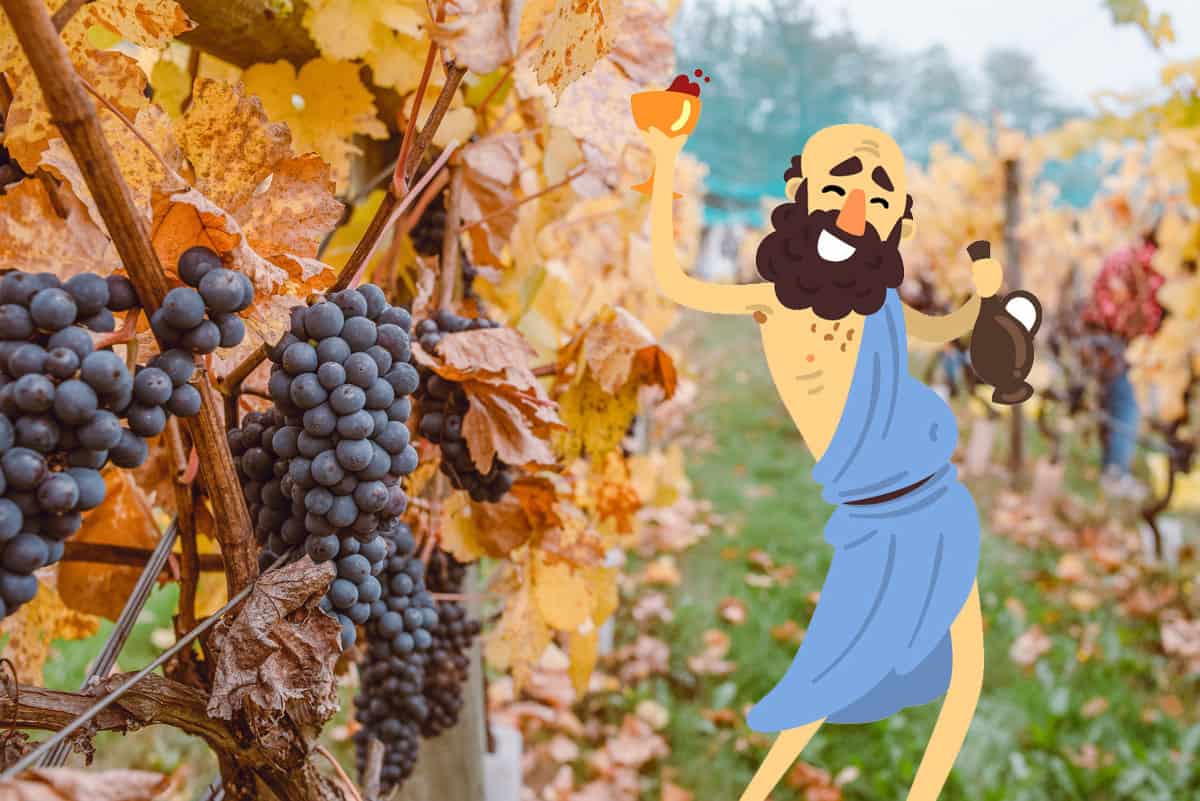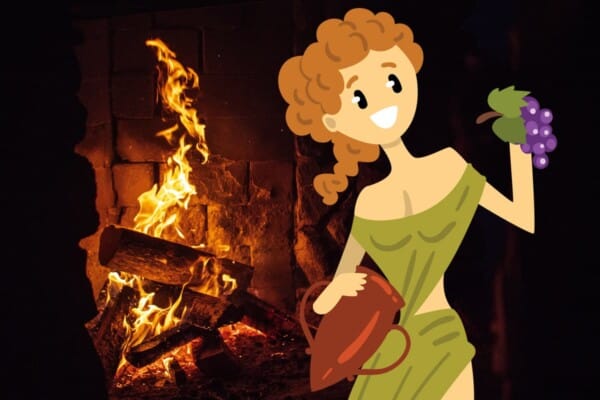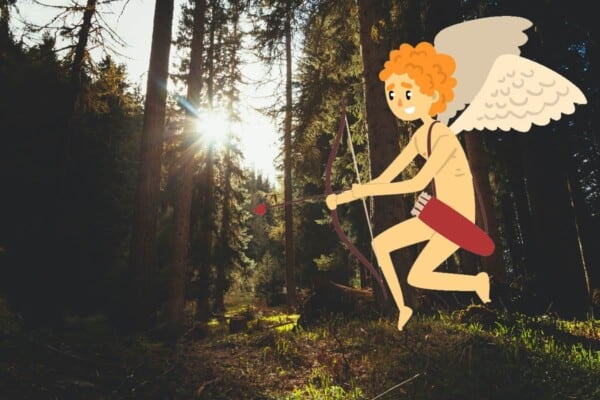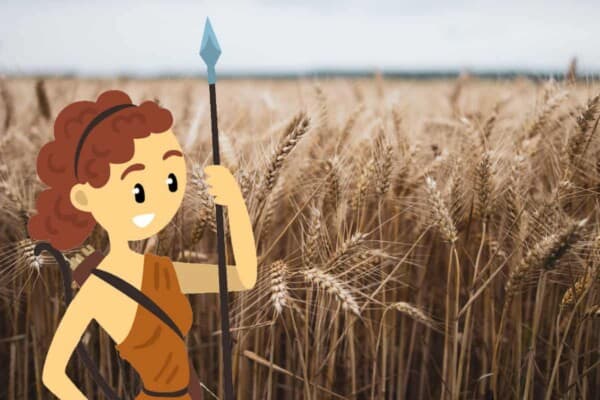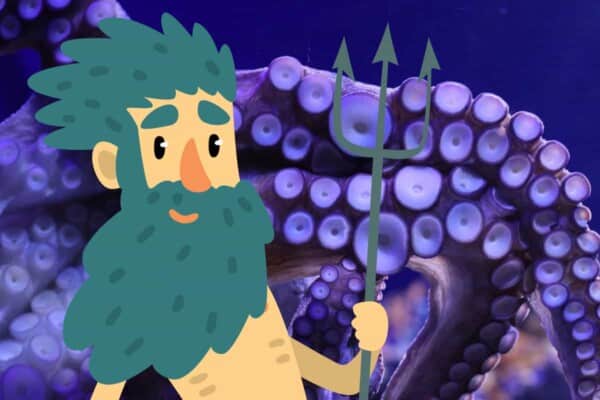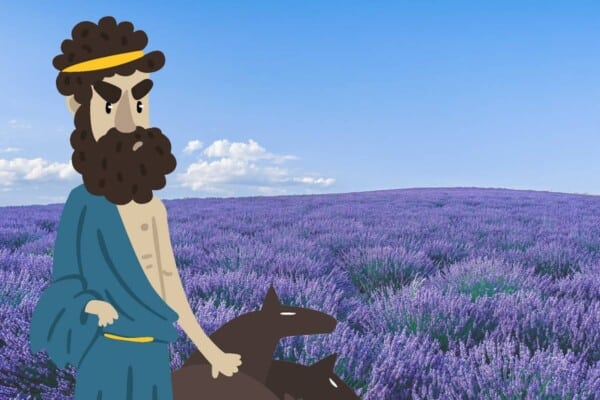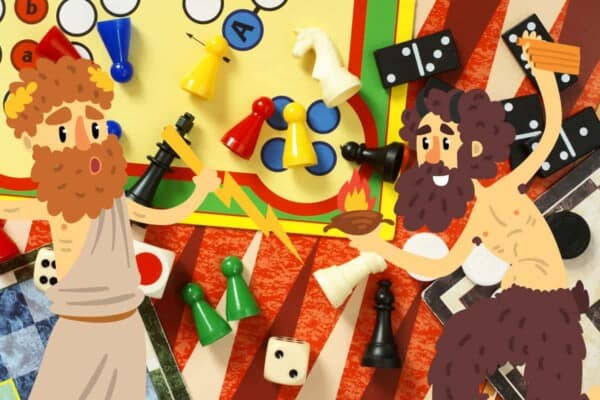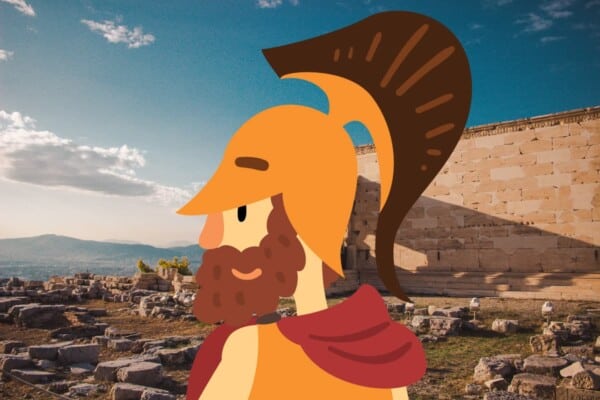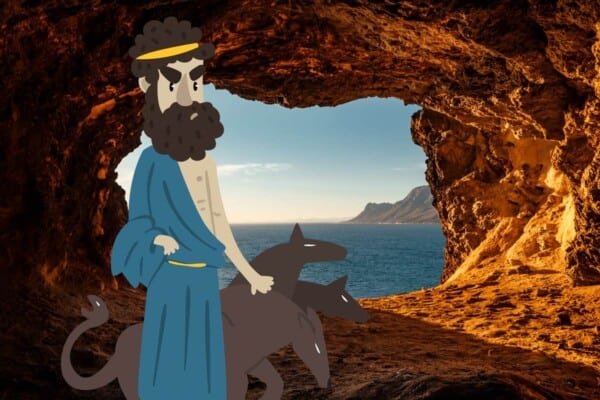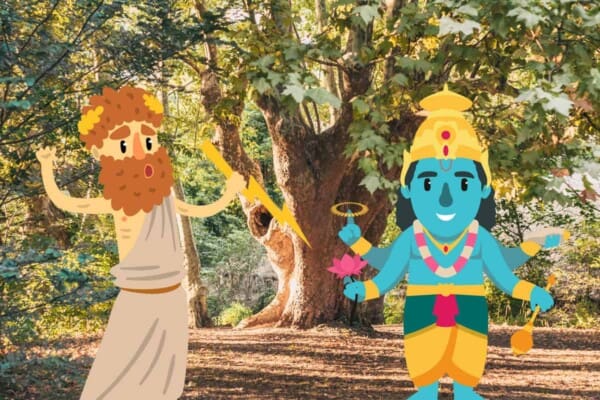The Twelve Gods Olympians were the ruling gods in Ancient Greek mythology, each with distinct and influential personalities, but why is Dionysus particularly important?
Dionysus was half-human and a later addition to the gods of Olympus. The story goes that Hestia, the goddess of the hearth and one of the original goddesses who defeated the Titans, relinquished her seat to him. Dionysus was the god of wine and ecstasy, parties, theatrical productions, and madness. His Roman name was Bacchus.
In Orphic tradition, where Zeus and Hades are aspects of the same god, Dionysus’s mother is Persephone rather than Semele.
What Role Does Dionysus Play in Some of the Myths?
Dionysus was an important figure across Greek myth and a favorite amongst philosophers, who saw him as the ideological opposite of and complement to the ordered sun god Apollo. Some of the most significant stories featuring Dionysus include:
- His birth – Dionysus was a son of Zeus. The king of the gods impregnated Semele, daughter of Cadmus, after appearing to her as a human. Hera, furious about the infidelity, tricked Zeus into showing Semele his true form, which promptly killed her. Zeus rescued the fetus and sewed it into his own thigh for gestation. Hermes took the baby to Semele’s sister Ino to raise after his birth.
- Target of Hera – Hera had a particular dislike of Dionysus due to Zeus’s infidelity, and she attacked the young god on several occasions as he grew. She cursed his aunt and uncle, driving them mad. She also made several attempts on his life, though he was protected by Hermes, who eventually brought the child back to his father.
- Saving his mother – As soon as he reached manhood, Dionysus made a journey into the Underworld to find the soul of his mother, Semele. The hero Herakles restrained the three-headed Cerberus and Dionysus was able to rescue Semele. He brought her to Olympus and, with the help of his father, made her into a goddess.
- Hands of gold – King Midas cared for and returned the missing Silenus, the schoolmaster of Dionysus. Dionysus offered him any reward, but cautioned him to take care. Midas demanded the power to turn anything he touched to gold, and ignored Dionysus’s warnings. Dionysus granted the wish, and Midas neared starvation and desolation by turning his food, clothes, and even his own daughter to gold.
- Saving Midas – On the brink of death, Midas prayed to Dionysus for help, apologizing for not heeding his warnings. Dionysus took mercy and told Midas to wash in the river Pactolus. Midas did and turned the river-sands to gold and then was free of the curse.
- Saving Ariadne – The Cretan princess Ariadne saved the hero Theseus by giving him a golden thread to get through the Minotaur maze. Though she loved him, Theseus rejected and abandoned her after taking her away to be married. Dionysus discovered Ariadne on Naxos and brought her to Olympus, where the two were married.
Who were the Children and Lovers of Dionysus?
As the god of revelry, it’s not surprising that Dionysus had a number of lovers! His wife, Ariadne, bore him many children, but he had other lovers as well, both male and female. The following are some of the most significant of his lovers and their children (if any).
- From Ariadne, his wife, Dionysus fathered thirteen children, many of whom became kings. These included Thoas and Enyeus.
- From his the Olympian goddess of love, Aphrodite, Dionysus is sometimes the father of the Three Graces (Charites) and Priapus. Priapus’s mother is often instead a naiad named Chione.
- From Aura, a minor wind goddess and companion of Artemis, Dionysus fathered Iaccus and his twin.
- From Alexirrhoe, Dionysus fathered Karmanor, who was killed by a boar on a hunt.
- From the Indian nymph Alphesiboea, who crossed a river on Dionysus’s back while he was in the form of a tiger and became known as Tigris, Dionysus fathered Medes.
- From either Araethyrea of Aras or Chthonophyle, princess of Sicyon, Dionysus fathered Phlias.
- From the enchantress Circe, Dionysus fathered Comus, a god of festivity and dalliance, who was his cupbearer.
- From Nicaea, a naiad nymph and companion of Artemis, Dionysus fathered Telete, a pleasure goddess.
- From Physcoa of Elis, Dionysus fathered Narcaeus, one of his first worshippers.
- Dionysus also fathered Methe, a goddess of drunkenness, whose mother was unknown.
- Dionysus had a number of lovers with whom he did not have children, including:
- Carya of Laconia. She eventually became a walnut tree.
- Pallene, daughter of King Sithon.
- Adonis, the human male lover he shared with Aphrodite and Apollo.
- Prosymnus, a male shepherd who guided him through the Underworld but died before full consummation.
- Ampelos, a satyr and personification of grape vines. He eventually became a grape vine or a constellation of stars after his death.
Who Was Dionysus Zagreus?
In Orphic and some other traditions, Zeus and Hades were two aspects of the same god. Zagreus was a son of Hades and Persephone who was often connected with Dionysus, and sometimes they were conflated together.
According to Nonnus, there were three rebirths of Dionysus. Zagreus was the first version of this, Semele’s son the second, and Iacchus the third.
Zagreus is also a god in his own right, separate from Dionysus, depending on the myth. He is always the son of Persephone. He is sometimes a son of Zeus, and in his primal form, he was a lover of Gaia. Most commonly, however, he was either a son of Hades or an aspect of Hades himself.
The Orphic Dionysus-Zagreus was a later combination of the two gods, merged to combine different theories of godhood.
What Were Some of Dionysus’s Epithets?
Like most gods, Dionysus had a number of names and epithets given to him in prayer. Some of the most famous of those names were:
- Aesymnetes (meaning “a just portion” or “lord and ruler”) was his name in Aroë in Achaea.
- Androgynos was a name describing the god’s sexual roles as both active and passive lover.
- Lyaios (“loosener” or “deliverer”), for how he released people from their fears and anxieties.
- Dendrites (“of the trees”) as a fertility and fruit god.
- Morychus (meaning “smeared”) was his name in Sicily, where his idols were smeared with wine.
- Oeneus (“wine-dark”) was his name as a god of the wine press.
- Mystes, (“mysteries”), as the god of the mysteries which his followers followed.
Final Thoughts
Dionysus is an interesting god in that his half-human origins make him somewhat unique upon Olympus. All of the other Olympians were either the children of Titans or the children of gods and other semi-divine creatures. Despite this, Hestia’s abdication of her seat in Dionysus’s favor speaks volumes.
Dionysus and his mysteries were and are important because he was connected to humanity in a way much more potent than any of the other gods. The dominions that he represents – drunkenness, partying, casual sex, and the like – are all essential parts of human life. The Ancient Greeks did not see these as vices as later religions would unless they were performed in extreme excess.
The most crucial job of Greek philosophers was finding the balance of human life. Which upstanding morality and heroics were significant, the ecstatic, relaxed side of life was important as well. For this reason, Dionysus was and continues to be an extremely interesting and examinable god in Greek myth. Life is a mystery, and the mysteries of Dionysus and Bacchus are still uncurling and fascinating their followers even today.

